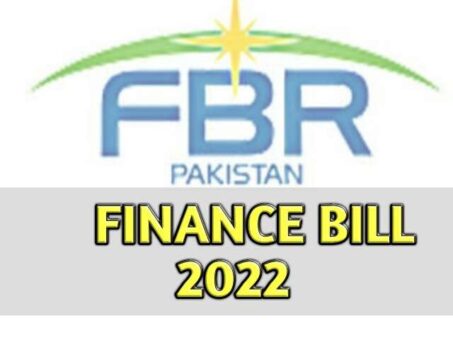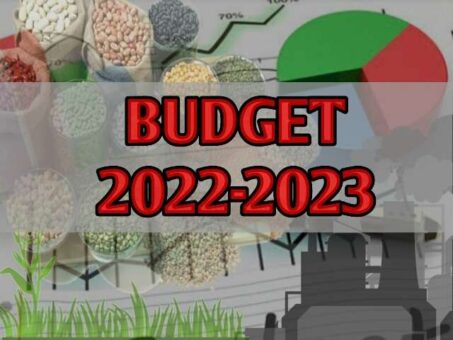ISLAMABAD: Pakistan has reduced the number of tax slabs for salaried persons through Finance Bill 2022 in the budget 2022/2023.
According to the Finance Bill, 2022 the government announced the reduction of salary tax slabs as well as incentive in tax payment for persons falling in the income range of Rs600,000 to Rs1.2 million.
READ MORE: Massive cut in subsidies to curtail current expenditures
Pakistan on June 10, 2022 presented its federal budget for the fiscal year 2022/2023. The budget carried several relief and taxation measures.
Finance Minister Miftah Ismail during his budget speech announced that the basic exemption for salaried persons has been increased to Rs1.2 million from Rs600,000.
READ MORE: Petroleum levy to generate Rs750 billion
As per income tax laws, the exempt income is not required to file income tax return and declaration of assets.
However, the Finance Bill, 2022 has clearly mentioned that the basic exemption from income tax for salaried persons is remained Rs600,000. However, persons falling in the income range of Rs600,000 and Rs1.2 million are required to pay a token amount of Rs100 as income tax on annual basis.
READ MORE: FBR assigned tax collection target of Rs7 trillion in 2022/2023
Therefore, it will be mandatory for persons falling under this income range to file income tax returns and declaration of assets. Besides, they will also be selected for audit.
Apart from this important amendment, the Finance Bill, 2022 also proposed to reduce the salary income slabs for the purpose of tax collection.
READ MORE: Budget 2022/2023: Salient features of customs duty act
Following are proposed and existing income slabs and tax rates:
Salary income slabs and tax rates proposed through Finance Bill, 2022:
| S# | Taxable Income | Rate of Tax |
| (1) | (2) | (3) |
| 1. | Where taxable income does not exceed Rs. 600,000 | 0 |
| 2. | Where taxable income exceeds Rs. 600,000 but does not exceed Rs. 1,200,000 | Rs. 100 |
| 3. | Where taxable income exceeds Rs. 1,200,000 but does not exceed Rs. 2,400,000 | 7% of the amount exceeding Rs. 1,200,000 |
| 4. | Where taxable income exceeds Rs. 2,400,000 but does not exceed Rs. 3,600,000 | Rs. 84,000 + 12.5% of the amount exceeding Rs. 2,400,000 |
| 5. | Where taxable income exceeds Rs. 3,600,000 but does not exceed Rs. 6,000,000 | Rs. 234,000 + 17.5% of the amount exceeding Rs. 3,600,000 |
| 6. | Where taxable income exceeds Rs. 6,000,000 but does not exceed Rs. 12,000,000 | Rs. 654,000 + 22.5% of the amount exceeding Rs. 6,000,000 |
| 7. | Where taxable income exceeds Rs. 12,000,000 | Rs. 2,004,000 + 32.5% of the amount exceeding Rs. 12,000,000.” |
Following are the rates of tax for salaried persons during tax year 2022 (July 01, 2021 – June 30, 2022):
(2) Where the income of an individual chargeable under the head “salary” exceeds seventy-five per cent of his taxable income, the rates of tax to be applied shall be as set out in the following table, namely:—
1. Where taxable income does not exceed: Rs. 600,000 0%
2. Where taxable income exceeds Rs. 600,000 but does not exceed Rs. 1,200,000: 5% of the amount exceeding Rs. 600,000
3. Where taxable income exceeds Rs. 1,200,000 but does not exceed Rs. 1,800,000: Rs. 30,000 plus 10% of the amount exceeding Rs. 1,200,000
4. Where taxable income exceeds Rs. 1,800,000 but does not exceed Rs. 2,500,000: Rs. 90,000 plus 15% of the amount exceeding Rs. 1,800,000
5. Where taxable income exceeds Rs.2,500,000 but does not exceed Rs. 3,500,000: Rs. 195,000 plus 17.5% of the amount exceeding Rs. 2,500,000
6. Where taxable income exceeds Rs. 3,500,000 but does not exceed Rs. 5,000,000: Rs. 370,000 plus 20% of the amount exceeding Rs. 3,500,000
7. Where taxable income exceeds Rs. 5,000,000 but does not exceeds Rs. 8,000,000: Rs. 670,000 plus 22.5% of the amount exceeding Rs. 5,000,000
8. Where taxable income exceeds Rs. 8,000,000 but does not exceeds Rs. 12,000,000: Rs. 1,345,000 plus 25% of the amount exceeding Rs. 8,000,000
9. Where taxable income exceeds Rs. 12,000,000 but does not exceeds Rs. 30,000,000: Rs. 2,345,000 plus 27.5% of the amount exceeding Rs. 12,000,000
10. Where taxable income exceeds Rs. 30,000,000 but does not exceeds Rs. 50,000,000: Rs. 7,295,000 plus 30% of the amount exceeding Rs. 30,000,000
11. Where taxable income exceeds Rs. 50,000,000 but does not exceeds Rs. 75,000,000: Rs. 13,295,000 plus 32.5% of the amount exceeding Rs. 50,000,000
12. Where taxable income exceeds Rs. 75,000,000 Rs. 21,420,000 plus 35% of the amount exceeding Rs. 75,000,000]




